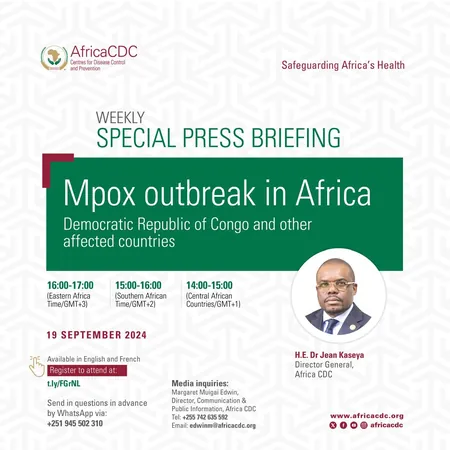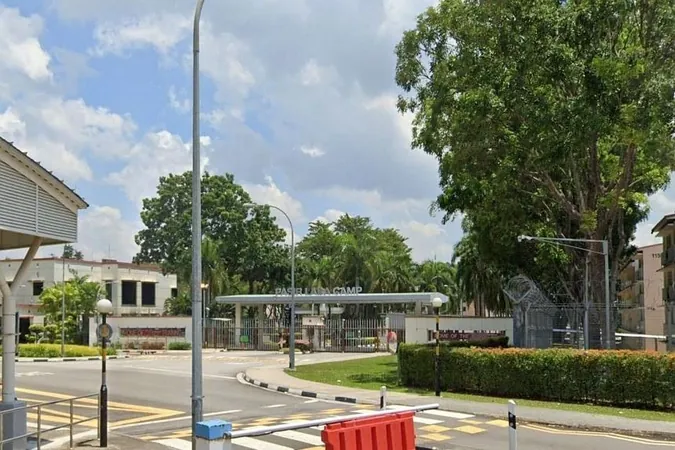
Promising Breakthrough: Relacorilant Could Revolutionize Treatment for Ovarian Cancer Patients
2024-09-27
Introduction
In a groundbreaking development in the fight against ovarian cancer, researchers have uncovered that Relacorilant (CORT-125134), a selective glucocorticoid receptor modulator, could significantly enhance treatment outcomes for patients battling recurrent, platinum-resistant high-grade serous ovarian cancer. This revelation comes from findings presented by Dr. Domenica Lorusso, highlighting the potential of this combination therapy to restore chemosensitivity in patients who have high levels of cortisol—a hormone known to fuel tumor progression.
Clinical Trial Progress
In a phase 2 clinical trial (NCT03776812), the integration of intermittent Relacorilant alongside nab-paclitaxel (Abraxane) demonstrated remarkable improvements in progression-free survival (PFS) and duration of response (DOR) compared to nab-paclitaxel alone. Patients receiving the combination therapy experienced a median PFS of 5.6 months, a significant increase from the 3.8 months observed in those treated solely with nab-paclitaxel. This translated to a hazard ratio of 0.66, indicating a notable reduction in the risk of disease progression. Furthermore, median DORs were also promising, indicating that patients treated with the combination therapy responded better overall.
Larger Phase 3 ROSELLA Trial
Building on these positive outcomes, the larger phase 3 ROSELLA trial (EudraCT 2022-000662-18) has commenced, focusing on confirming these benefits across a broader patient cohort. The trial, which involves multiple centers and randomized arms, is exploring the efficacy of intermittent Relacorilant combined with nab-paclitaxel against the standard investigator's choice chemotherapy in patients diagnosed with high-grade serous epithelial ovarian, fallopian tube, or primary peritoneal cancer.
Expert Insights from Dr. Lorusso
Dr. Lorusso, a leading researcher and director of the Gynaecological Oncology Unit at Humanitas Hospital in Milan, is enthusiastic about the potential of glucocorticoid receptor modulators in addressing this challenging disease. She has stressed the importance of further investigating how these agents can effectively be utilized in solid tumors, especially given that preclinical studies have shown that overexpression of glucocorticoid receptors correlates with poor prognoses and chemoresistance.
Rationale Behind the Combination Therapy
In discussing the rationale behind combining Relacorilant with nab-paclitaxel, Dr. Lorusso pointed to previous phase 1 trials that indicated an additive effect when the two were used together, making nab-paclitaxel a preferred choice due to its lack of need for corticosteroid premedication. Encouraging preliminary results led to a decisive move towards randomized phase 2 evaluations, revealing considerable advancements in key metrics like overall survival and response rates.
Future Directions
As the ROSELLA trial progresses, recruitment is closed, and the medical community is eagerly awaiting final results, which could be pivotal in transforming treatment strategies for patients with platinum-resistant ovarian cancer—a notoriously difficult-to-treat condition.
Conclusion
Dr. Lorusso shared valuable insights, noting that understanding the relationship between stress, cortisol levels, and patient outcomes has opened a new avenue of therapeutic possibilities. The exploration of blocking the cortisol-driven pathways in tumors offers hope for improved survival rates and better quality of life for those affected by this disease.
Stay Tuned!
Stay tuned as we continue to cover these crucial developments in cancer research!



 Brasil (PT)
Brasil (PT)
 Canada (EN)
Canada (EN)
 Chile (ES)
Chile (ES)
 España (ES)
España (ES)
 France (FR)
France (FR)
 Hong Kong (EN)
Hong Kong (EN)
 Italia (IT)
Italia (IT)
 日本 (JA)
日本 (JA)
 Magyarország (HU)
Magyarország (HU)
 Norge (NO)
Norge (NO)
 Polska (PL)
Polska (PL)
 Schweiz (DE)
Schweiz (DE)
 Singapore (EN)
Singapore (EN)
 Sverige (SV)
Sverige (SV)
 Suomi (FI)
Suomi (FI)
 Türkiye (TR)
Türkiye (TR)